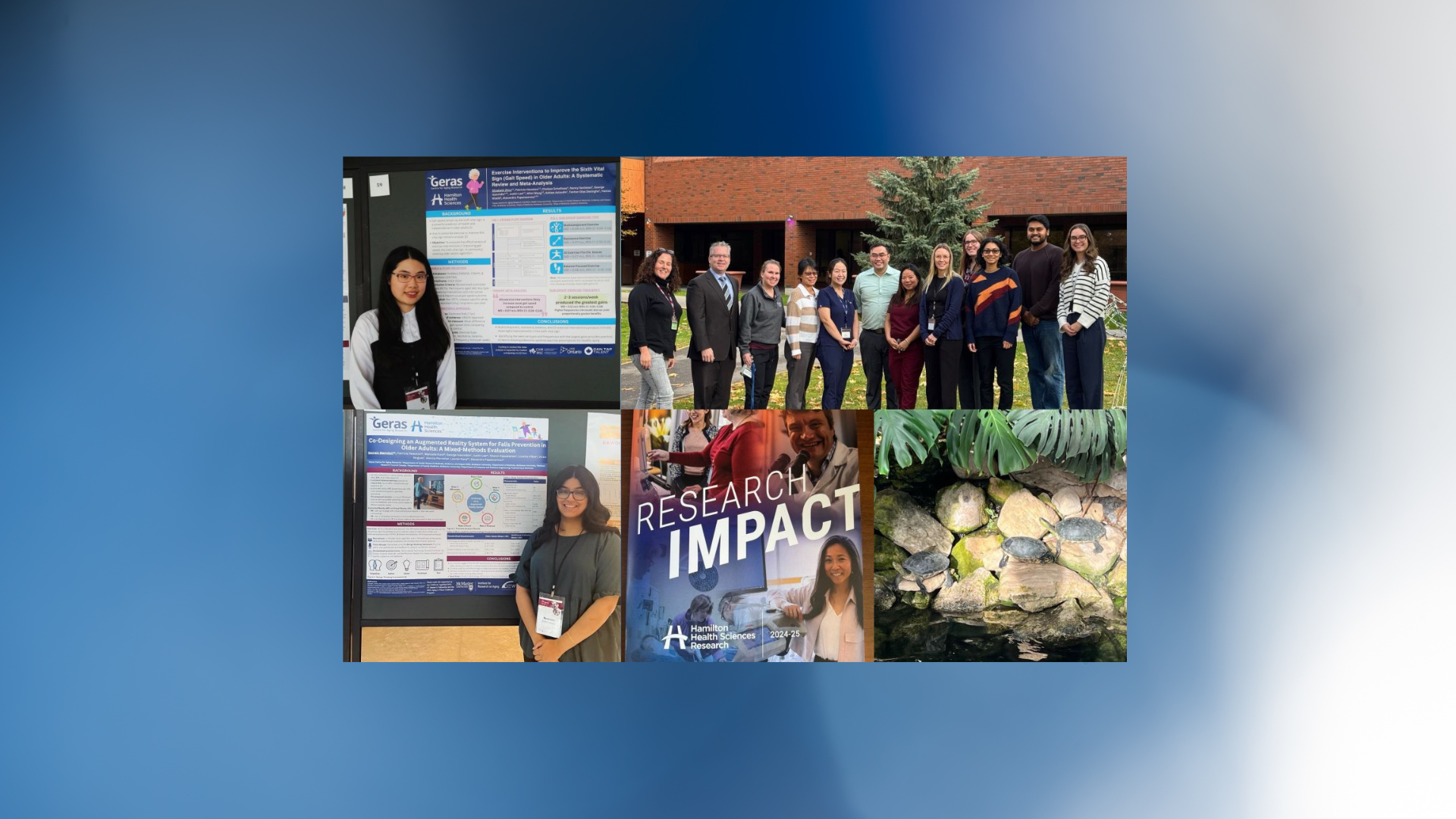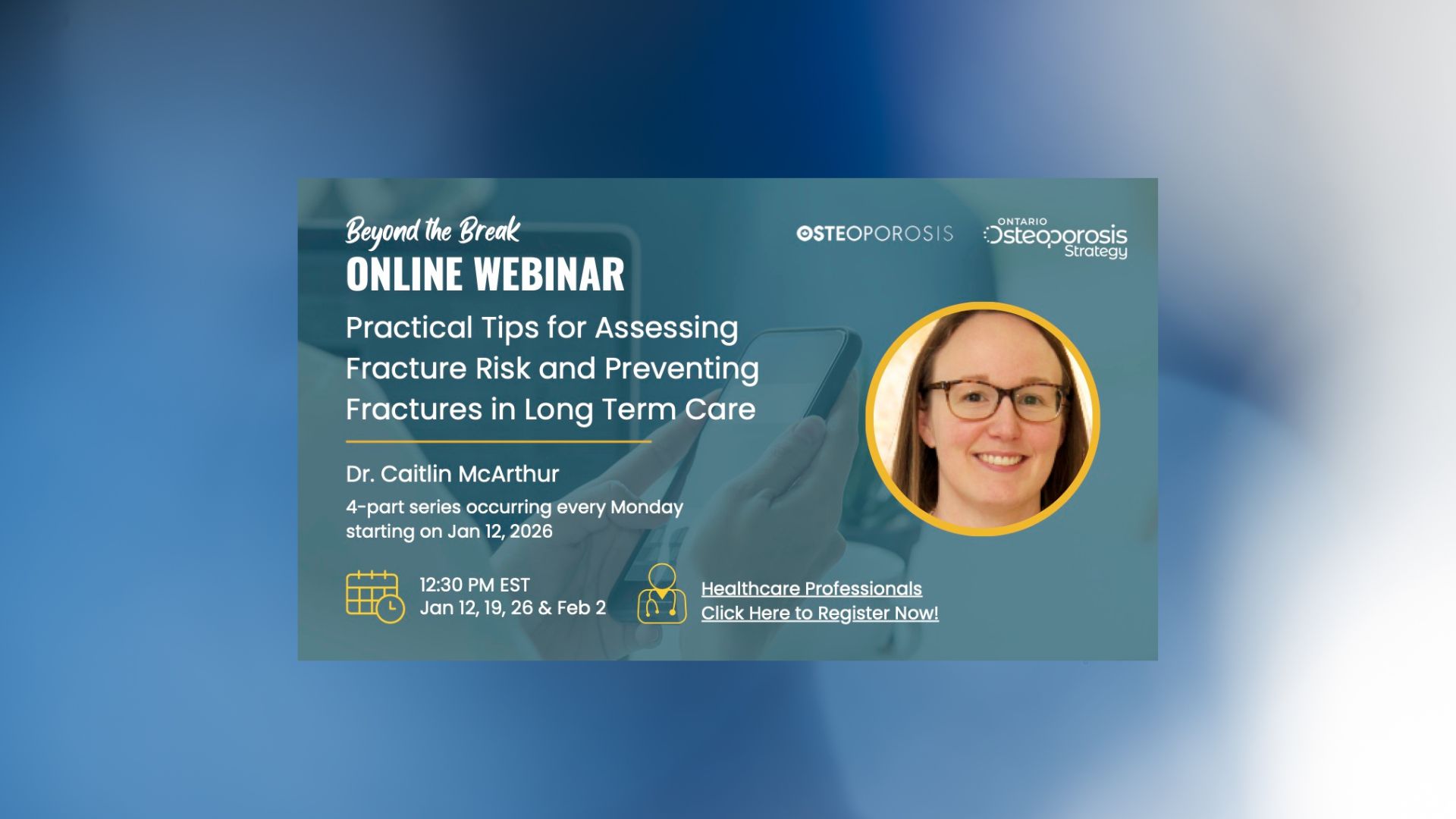Frailty scores could be at docs’ fingertips
HHS geriatrician leads project to build frailty scores into hospital information system
The ever-growing amount of information added daily to Hamilton Health Sciences (HHS)’ state-of-the-art Epic hospital information system is making it possible to identify and rate patients for frailty, so they receive the best and most appropriate care.
Epic is considered to be among the best hospital information systems in the world and is used internationally by many top-ranked hospitals. It was launched at HHS in 2022, replacing dozens of electronic and paper systems, so that every patient’s confidential medical information is available in one secure place, electronically.

Dr. Justin Lee, HHS geriatrician
Dr. Justin Lee, a geriatrician with HHS St. Peter’s Hospital, will be working with HHS’ health information technology services (HITS) to create a frailty scoring system within Epic. Scores would give HHS clinicians such as doctors, nurses, social workers, occupational therapists and physiotherapists a full picture of patients’ frailty, so they can best support them, says Lee, a researcher with the Geras Centre for Aging Research, a centre at HHS that’s affiliated with McMaster University. Lee is leading this research project in partnership with Geras and the McMaster Institute for Research on Aging (MIRA).
“We know this information can be used to measure a patient’s level of frailty, to help their clinician understand the full picture of their needs, and why they may be having difficulties.”
Over the next 20 years, Canada’s senior population is expected to grow by 68 per cent, according to the Canadian Institute for Health Information. Geras, located at HHS St. Peter’s Hospital, has a decade-long track record of making discoveries that change how health care is delivered to older adults locally and globally.
What is frailty?
Frailty is a medical condition involving reduced function and health. When a person is frail, their body has less resilience to bounce back from illness. Physical inactivity, poor nutrition, social isolation and multiple medications can contribute to frailty. Knowing how frail someone is can aid in forming a treatment plan and accessing resources and support for activities of daily living.
While there are existing tools, such as detailed checklists that doctors can use to measure frailty, they’re time consuming and need to be done in-person during an appointment. Plus, they’re not routinely used.
Mining Epic
“Meanwhile, clinicians input patient information into Epic every day, but these data are generally underutilized,” says Lee. “We know this information can be used to measure a patient’s level of frailty, to help their clinician understand the full picture of their needs, and why they may be having difficulties. Using this frailty score, we can take a more personalized and targeted approach to help our frail patients.” “All of the potential is there thanks to Epic.”
Consultations are currently underway with HHS clinicians responsible for inputting patient information into Epic. A data analyst will then work to create an algorithm for pulling information together and calculating a frailty score.
“All of the potential is there thanks to Epic,” says Lee. “Now we are concentrating on tapping into that, to advance care for our patients living with frailty.”
The big picture includes health equity
The beauty of Epic is that a patient’s medical history is available electronically in one place. That’s especially important because it’s common for HHS patients to be cared for by multiple clinicians from different departments.
Hamilton Health Sciences is working to make health equity data collection a standard practice across many of the hospital sites. This begins with establishing a process to collect such data using e-Check-in and MyChart.
MyChart is a free, secure, online tool that’s available to all HHS patients and provides easy access to their hospital health record, and an opportunity to voluntarily provide personal information related to health equity.
“As geriatricians, we consider more than medical conditions,” says Lee. “We also consider people’s social health. Are they isolated? Do they have cognition problems? Do they have physical problems where, for example, they can’t manage their basic needs and care for themselves without assistance? With the Epic system we can draw from all areas for a single score that allows clinicians to develop a more holistic and targeted plan to help our patients.”
Read the story here: https://www.hamiltonhealthsciences.ca/share/building-frailty-scores-into-epic/


